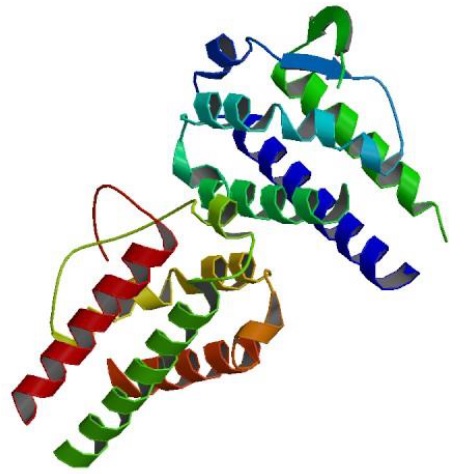 Nanobody Discovery Service
Nanobody Discovery Service ProtTech has developed a novel AT-fusion platform (patent pending) to increase the in vivo half life of cell signaling proteins and nanobodies for therapeutic applications.
Cell signaling proteins such as cytokines and growth factors often have small molecular weights and very short in vivo half lives. The essential physiological functions of those signaling molecules make them an important class of medicines to treat various human diseases. However, the poor pharmacokinetics of those molecules largely limit their therapeutic application.
Several methods have been developed to increase the half lives of signaling proteins, for example, protein pegylation, Fc fusion and Albumin fusion. However, each of these methods has significant drawbacks. Pegylation often leads to a dramatic decrease in protein biological activity. Fc-fusion protein requires mammalian cell expression, which often involves high development and production cost, and the yield of production is often low due to the toxicity of the signaling proteins to the host cells. Albumin fusion can be expressed in yeast cells, but the yeast glycan modification (high mannose) poses serious immunogenic risks, and removal of degradation products is often a very challenging task for process development.
We have developed a large number of signaling protein fusions, and we have demonstrated that our fusion proteins can be expressed in E. coli cell in an active form at a high yield (>10g/L). The biological activity of the fusion proteins are comparable to the native molecules, and have low immunogenicity. Similarly, nanobody, or a VHH antibody fragment, often has a small similar MWt (~15Kda) and a short in vivo half-life. The AT-fusion platform may provide an effective way to increase its in vivo half-life, while retaining its valuable properties such as thermo stability, affinity, and high expression in an E. coli system.
Similarly, Nanobody, or VHH antibody fragment has a similar MWt and half-life issue for therapeutic use. We have demonstrated that our AT-fusion platform is very effective to increase its in vivo half-life, while retains their valuable properties such as thermo stability, affinity, and capable expression in E. coli system.
Please Contact Us if you are interested in our AT-fusion protein platform for the signaling protein or nanobody of your interest. We’ll be able to complete the whole development project and deliver fusion protein to you for testing in 2-3 months.